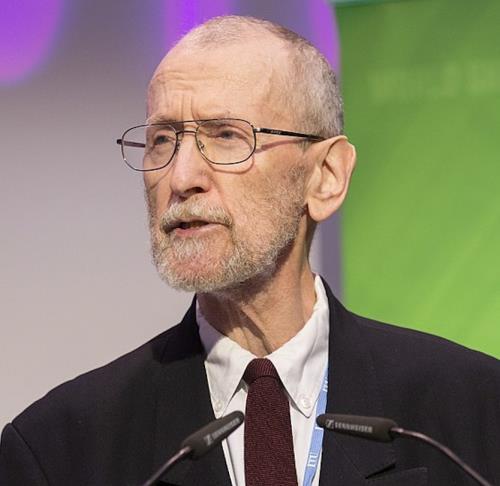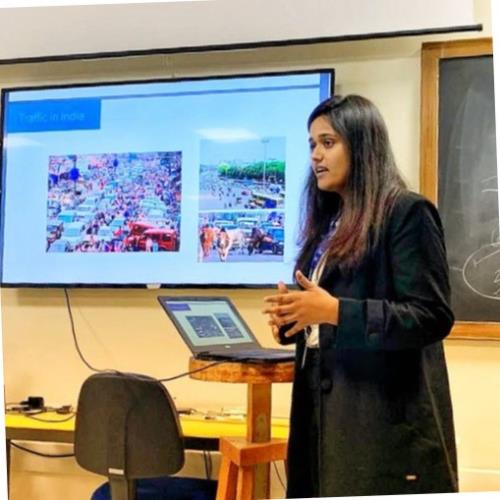The Role of ICTs, e-Science, and Scientific Multistakeholder Cooperation in Advancing Sustainable Development
WSIS
Session 556
Science Summit at UNGA78
The use of ICT, e-science, and scientific multistakeholder cooperation can play a crucial role in advancing sustainable development. Here are some topics/questions this session will consider discussing:
1. How can the use of ICTs and e-science help promote sustainable development across different sectors (e.g., energy, agriculture, health, etc.)?
2. What are some successful examples of scientific multistakeholder cooperation in advancing sustainable development, and what lessons can we learn from these experiences?
3. How can we promote more effective collaboration between different stakeholders (e.g., governments, private sector, civil society, academia, etc.) in using ICTs and e-science for sustainable development?
4. What are some of the key challenges that need to be addressed in order to fully leverage the potential of ICTs and e-science in advancing sustainable development?
5. What are the ethical and social implications of using new technologies for sustainable development, and how can we ensure that these innovations are used in a responsible and equitable manner?
ICT applications can support sustainable development, in the fields of public administration, business, education and training, health, employment, environment, agriculture but also in the filed of science within the framework of global, regional and national science and digital strategies.
According to WSIS+10 vision, “e-science revolutionizes science by changing the way in which research is conducted; how the scientific agenda is defined; who participates in it; how the results and data are shared; the pace at which policymakers, scientists and individuals access knowledge; and who participates in the policy follow up of research outcomes.”
This session will seek to discuss how WSIS process can support scientific ecosystem's critical role in information and knowledge production, education and training, and to support the establishment of partnerships, cooperation and networking between these institutions.
It will also explore the progress made on implementation of the WSIS Action Line on e-Science, in particular covering items from the Geneva Plan of Action inviting the multistakeholder community to:
- Promote electronic publishing, differential pricing and open access initiatives to make scientific information affordable and accessible in all countries on an equitable basis.
- Promote the use of peer-to-peer technology to share scientific knowledge and pre-prints and reprints written by scientific authors who have waived their right to payment.
- Promote the long-term systematic and efficient collection, dissemination and preservation of essential scientific digital data, for example, population and meteorological data in all countries.
- Promote principles and metadata standards to facilitate cooperation and effective use of collected scientific information and data as appropriate to conduct scientific research.
Since 2005, WSIS has recognized that science has a central role in the development of the Information Society. Many of the building blocks of the Information Society are the result of scientific and technical advances made possible by the sharing of research results. The ability for all to access and contribute information, ideas and knowledge is essential in an inclusive Information Society.
The sharing and strengthening of global knowledge for development can be enhanced by removing barriers to equitable access to information for economic, social, political, health, cultural, educational, and scientific activities and by facilitating access to public domain information, including by universal design and the use of assistive technologies. WSIS strives to promote universal access with equal opportunities for all to scientific knowledge and the creation and dissemination of scientific and technical information, including open access initiatives for scientific publishing.
This session could help showcase the importance of using technology and scientific collaboration as key tools for advancing sustainable development, and how these efforts can drive positive change across multiple sectors and stakeholders.






-
 C1. The role of governments and all stakeholders in the promotion of ICTs for development
C1. The role of governments and all stakeholders in the promotion of ICTs for development
-
 C2. Information and communication infrastructure
C2. Information and communication infrastructure
-
 C3. Access to information and knowledge
C3. Access to information and knowledge
-
 C6. Enabling environment
C6. Enabling environment
-
 C7. ICT applications: benefits in all aspects of life — E-science
C7. ICT applications: benefits in all aspects of life — E-science
-
 C11. International and regional cooperation
C11. International and regional cooperation
-
 Goal 3: Ensure healthy lives and promote well-being for all
Goal 3: Ensure healthy lives and promote well-being for all
-
 Goal 4: Ensure inclusive and equitable quality education and promote lifelong learning opportunities for all
Goal 4: Ensure inclusive and equitable quality education and promote lifelong learning opportunities for all
-
 Goal 8: Promote inclusive and sustainable economic growth, employment and decent work for all
Goal 8: Promote inclusive and sustainable economic growth, employment and decent work for all
-
 Goal 9: Build resilient infrastructure, promote sustainable industrialization and foster innovation
Goal 9: Build resilient infrastructure, promote sustainable industrialization and foster innovation
-
 Goal 11: Make cities inclusive, safe, resilient and sustainable
Goal 11: Make cities inclusive, safe, resilient and sustainable
-
 Goal 12: Ensure sustainable consumption and production patterns
Goal 12: Ensure sustainable consumption and production patterns
-
 Goal 13: Take urgent action to combat climate change and its impacts
Goal 13: Take urgent action to combat climate change and its impacts
-
 Goal 16: Promote just, peaceful and inclusive societies
Goal 16: Promote just, peaceful and inclusive societies
-
 Goal 17: Revitalize the global partnership for sustainable development
Goal 17: Revitalize the global partnership for sustainable development